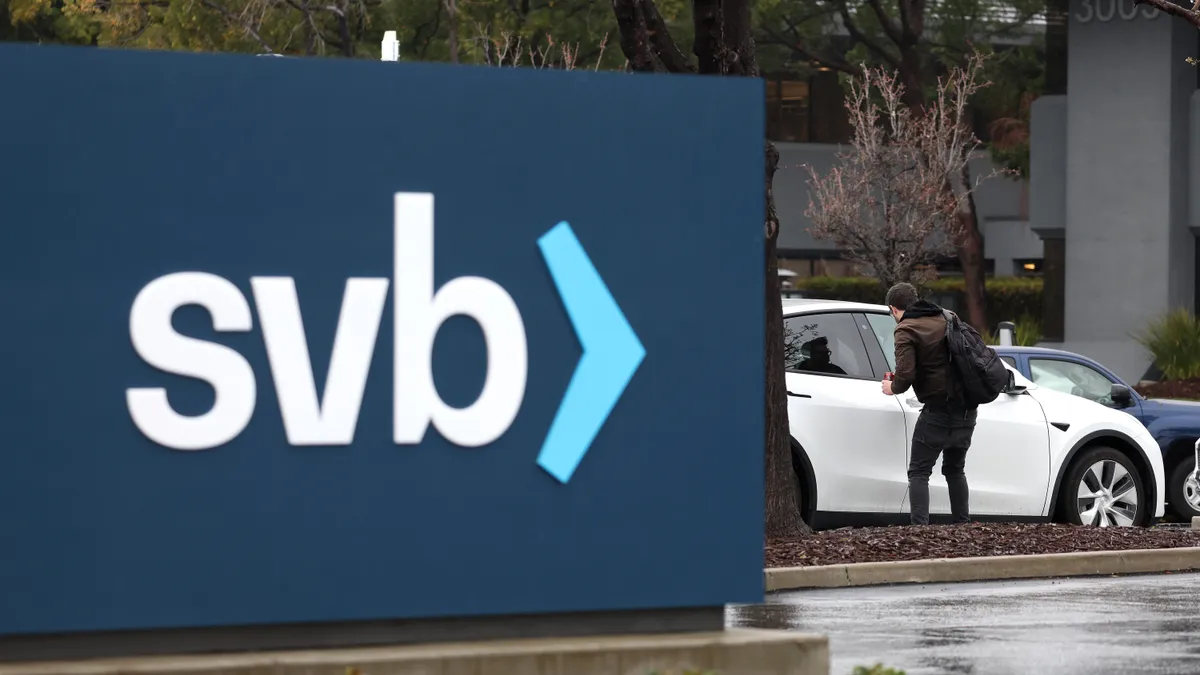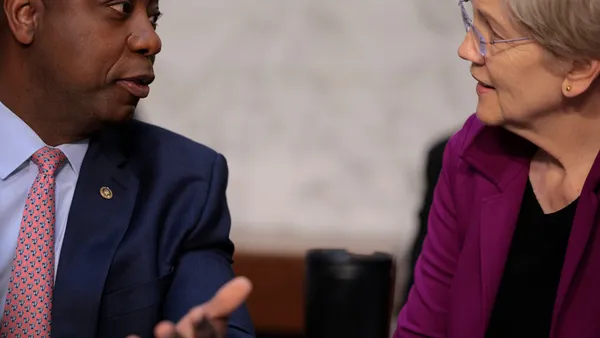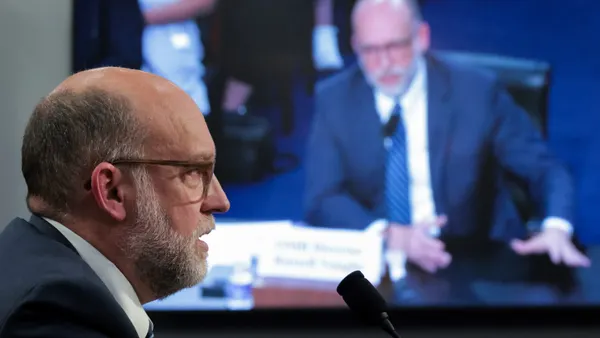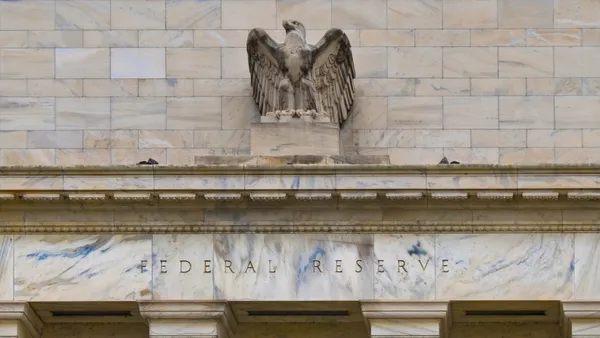Dive Brief:
- The rollback of post-2008 bank regulations during the Trump presidency did not contribute to Silicon Valley Bank’s failure last month, a top Federal Deposit Insurance Corp. official said Wednesday during a Bipartisan Policy Center event in Washington.
- FDIC Vice Chairman Travis Hill, a former Republican Senate staffer, pushed back on growing calls from some progressive lawmakers that lax regulations, stemming from Trump-era rollbacks, led to the bank’s collapse.
- “Mismanagement of interest rate risk was at the core of SVB’s problem,” said Hill, urging policymakers to propose changes “based on where we find evident holes in our framework, rather than just trying to undo policies of the past.”
Dive Insight:
The collapse of several regional banks last month has sparked an ongoing debate among lawmakers and regulators over what led to the failures and whether stricter regulations are needed to prevent future bank crises.
Some Democratic lawmakers and the White House have pointed the finger at S. 2155, bipartisan legislation signed by former President Donald Trump in 2018 that eased regulatory oversight of midsize lenders like SVB and Signature Bank, another firm that collapsed last month.
Hill, however, said the effort to blame SVB’s failure on S. 2155 highlighted a Washington trend to “criticize and blame first, and learn and understand later.”
“I think it is quite obvious that S. 2155 had nothing to do with [the collapse],” said Hill, one of two Republicans on the FDIC’s five-member board. “The rule changes did not change the stringency of capital standards for a bank of SVB’s size, the stress tests did not test for rapidly rising rates, and the exact thing that got SVB in trouble — investing in government bonds — is exactly what the liquidity coverage ratio is designed to require. The reasons for SVB’s failure are quite straightforward and easy to explain, and those rule changes had nothing to do with them.”
Hill said SVB failed to keep an eye on interest rate risk and asset liability management. The bank’s belated attempt to address problems in early March, by selling securities at a loss and raising capital to fill the hole, spooked depositors, resulting in the bank run and subsequent takeover of the FDIC, he said.
“There are numerous potential ways to encourage banks to better manage interest rate risk,” Hill said. “We should evaluate any potential policy changes thoughtfully and, in trying to solve the problems of March 2023, remain mindful of how any policy changes impact the majority of banks in the majority of times.”
Regulators should closely review the lessons learned from the recent failures, and be open to targeted changes to framework, he said.
"But we should be humble about what our rules and policies can accomplish, and avoid the temptation to overcorrect," Hill added.
Last month, Raleigh, North Carolina-based First Citizens agreed to buy $110 billion of SVB’s assets, $56.5 billion in deposits and $72 billion in loans in a deal that would leave $90 billion in securities and other assets in FDIC receivership.













